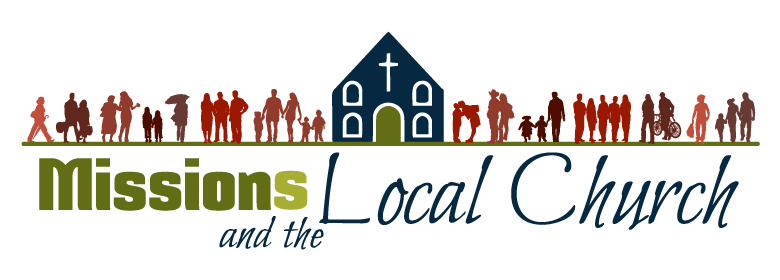 I spent a recent weekend with a 350 really smart people who use really big words. Most, it seems, are PhDs or in the process of earning a PhD. They come from and have ministered on every continent of the world, with the possible exception of Antarctica. They are pastors and missionaries and university professors; anthropologists, sociologists, linguists.
I spent a recent weekend with a 350 really smart people who use really big words. Most, it seems, are PhDs or in the process of earning a PhD. They come from and have ministered on every continent of the world, with the possible exception of Antarctica. They are pastors and missionaries and university professors; anthropologists, sociologists, linguists.
I felt … not out of place, but out of my league—like a weekend soccer player taking the field with the likes of Lionel Messi, Rolandinho, Neymar, and Cristiano Ronaldo.
The Evangelical Missiological Society gathers these academicians and missiologists each year to share research and practice around a central theme. This year’s theme was Missions and the Local Church — a matter close to my heart as a pastor, a missionary kid, and a missions practitioner and advocate.
Truth be told, I went for my own fifteen minutes of fame: I was invited to present a paper I had written about how a church I pastored sought to shift how and what we did in missions. But I have to confess: I also went with low expectations of the weekend; academic researchers are not always known to be dynamic presenters, and their papers are not always compelling subjects for guys like me who just want to lead a church to make disciples at home and somewhere around the world.
My low expectations were vastly exceeded. So much so, in fact, that I needed to take a break from the presentations that have greatly encouraged and challenged me in order to put some thoughts down on paper. (Or a computer.) A sampling:
In The Burden of Healing: How Pentecostal Believers Experience and Make Sense of Chronic Illness, Shelly Isaacs shared the stories of men and women suffering from chronic illnesses, whose burdens were made heavier by the unfulfilled promise and expectation of divine healing. The stories hit close to home, as I could relate each one to my own friends who also hoped, prayed, and had faith to be healed … yet never received the expected and desired answer.
Steven Weathers, a PhD student, shared research about ideologies that inform evangelical perceptions around Black Lives Matter. His words were often hard, and challenged me (as a white evangelical man) to again confront my own implicit biases—that is, those that I am not even aware of lurking sometimes deep in my heart and sometimes just under the surface. A couple statements worthy of noting:
Evangelicals are not countercultural, but call for personal change that leaves systemic cultural norms in place. [from Emerson & Smith; source unknown]
Black Lives Matter won’t matter to white evangelicals if we think individually; we need to think systemically. [Weathers]
These are particularly damning statements. They suggest we are willing to change ourselves just enough to be comfortable, but we won’t fight against the cultural realities that lie at the root of Black Lives Matter (or the civil rights fight of fifty years ago).
Some final thoughts from Ed Stetzer’s keynote address on Priorities for Churches in Missions: the decline of denominationalism and the rise of non-denominational churches has not been a neutral influence on cross-cultural missions. Historically, missions had a voice at the table with denominational leadership, and there was a clear and intentional pathway to missions through denominations. With the growth of non-denominational churches (400% since the 1980s—and now the largest evangelical bloc), “innovation is now a higher priority than missions awareness and engagement.”
Within evangelicalism, “missional” has grown while “missions” has declined; gospel demonstration has increased (a good thing), but gospel proclamation has taken a back seat (not so good).
We must no longer merely give lip service to balancing demonstration and proclamation; we must actively practice both.
In my own paper about engaging the local church in global missions, I included this statement from a book by three missiologists: “the center of gravity in missions has moved from the agency to the local church.” I think that’s a good thing; but Stetzer brought a tempering perspective: Churches are vexed about the nations, but don’t have the connections, training, or constructs to engage well and effectively.
The great charge to the Church is to make disciples of all peoples, everywhere. One of my great burdens is to help local churches do that well and effectively … whether it means engaging with the Black Lives Matter movement, offering hope and healing to the chronically ill, serving refugees, rescuing victims of human trafficking, or preaching Jesus where His name has not yet been heard.

 As I continue, slowly, to work my way through the prophetic book of Jeremiah, I’ve come to a section of prophecies against Israel’s neighbors: Egypt, Philistia, Moab, and many others. It doesn’t make for nice, cheery reading! Words like woe, disaster, and desolation pepper the text. Shame, slaughter, calamity. Clearly, Yahweh—the personal, jealous, almighty God of Israel—is not happy with these nations that have waged centuries of war against his chosen people.
As I continue, slowly, to work my way through the prophetic book of Jeremiah, I’ve come to a section of prophecies against Israel’s neighbors: Egypt, Philistia, Moab, and many others. It doesn’t make for nice, cheery reading! Words like woe, disaster, and desolation pepper the text. Shame, slaughter, calamity. Clearly, Yahweh—the personal, jealous, almighty God of Israel—is not happy with these nations that have waged centuries of war against his chosen people.
 As I write this, I’m sitting in Starbucks working on a paper about engaging the local church in missions (and, interestingly, listening to Chris Tomlin’s “
As I write this, I’m sitting in Starbucks working on a paper about engaging the local church in missions (and, interestingly, listening to Chris Tomlin’s “